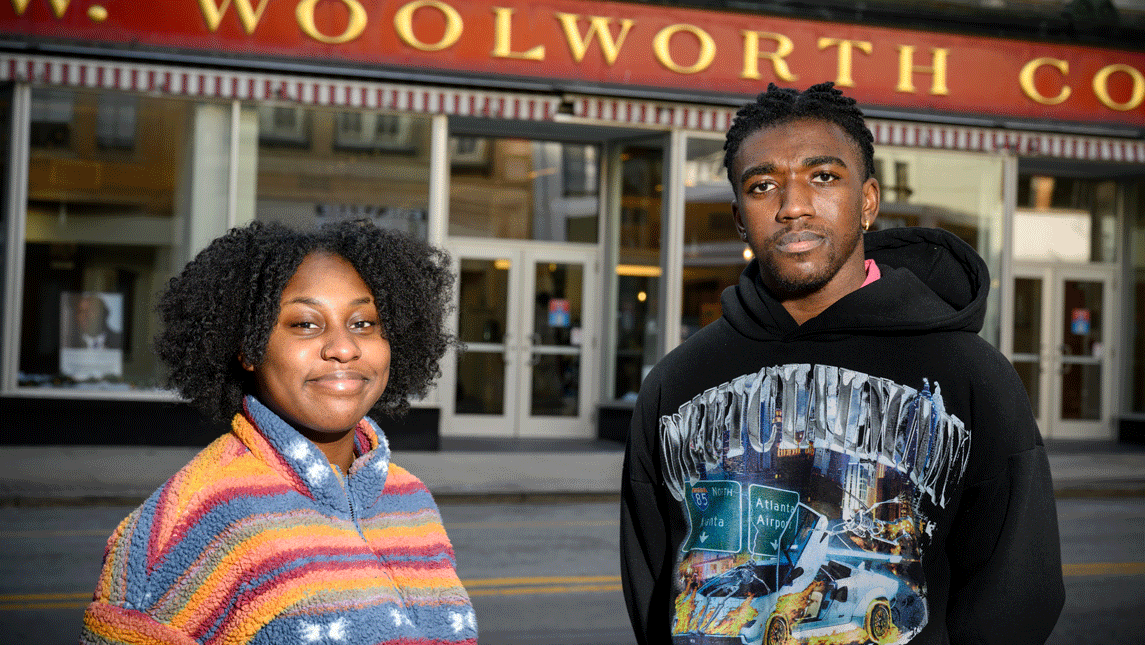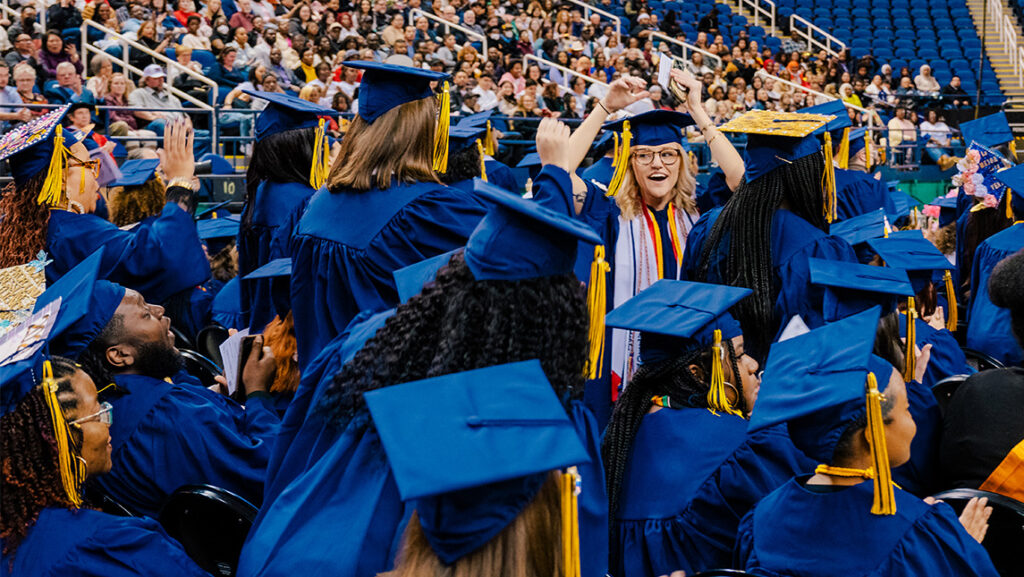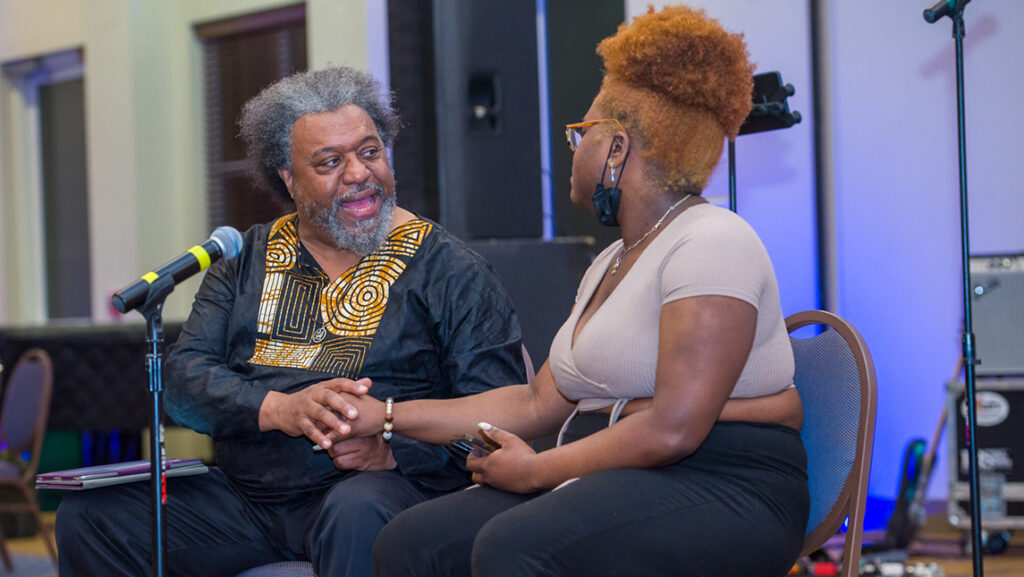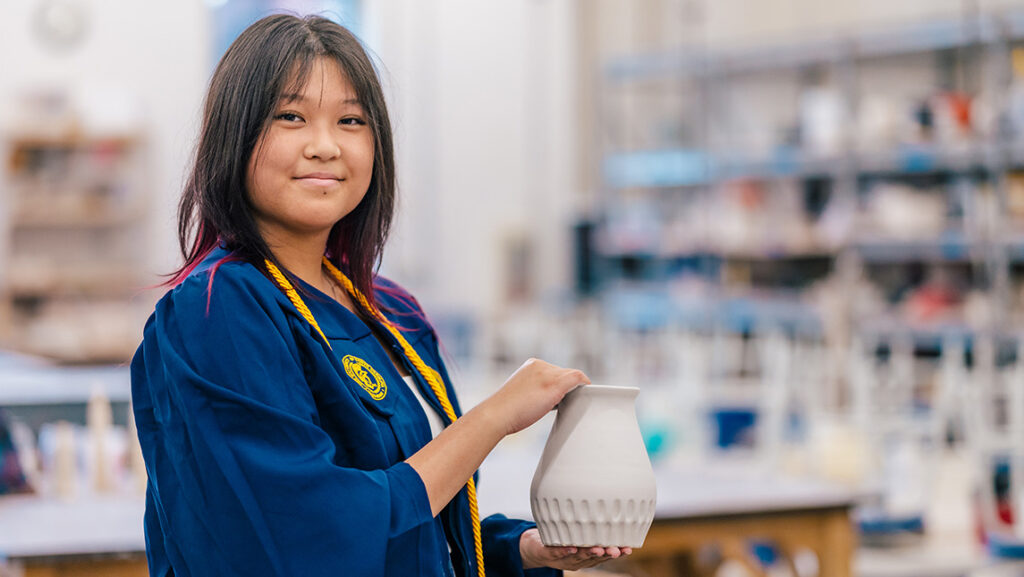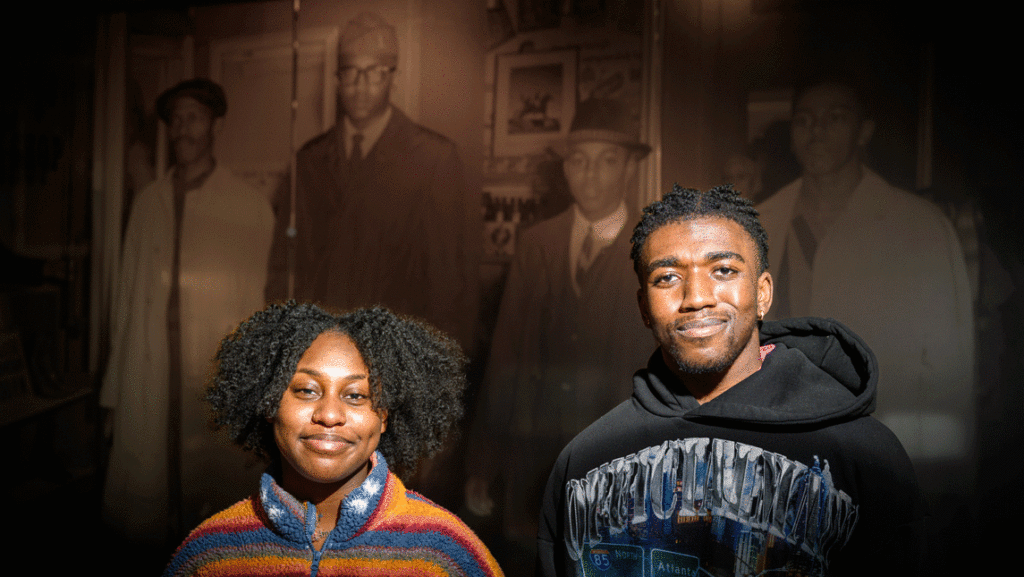
A powerful advocate for the memorialization of lynchings. A Tigrayan-American who shares her homeland’s hardship and teaches women’s self-defense. A young storyteller discovering his talents. An undergraduate psychology researcher looking at stigmas of mental health.
These are all UNC Greensboro African American and African Diaspora studies students who will join faculty in making presentations at CACE, the annual Conference in African American and African Cultures and Experiences, a two-day series of virtual panels, roundtables, interviews, and poetry that explores how African-descended peoples have renamed public histories, reshaped politics and academia, reimagined social justice, and redefined equitable health care. The conference theme is “And Still We Rise: Black Spacemaking, Place, and Community.”
According to Dr. Noelle Morrissette, program director for African American and African Diaspora Studies, the students help create an opportunity to reflect on the institutional transformations of UNC Greensboro over time.
“They are engaged in creative and scholarly expressions of a living history of social justice, and they recognize that the history of Black Studies (AADS) at the University is an important part of this conversation,” said Morrissette.
Several undergraduate students who advance the AADS program as interns or ambassadors shared their thoughts about Black History Month and the UNCG environment, and also inspiring words for Black students.
Mikhalia Lambert
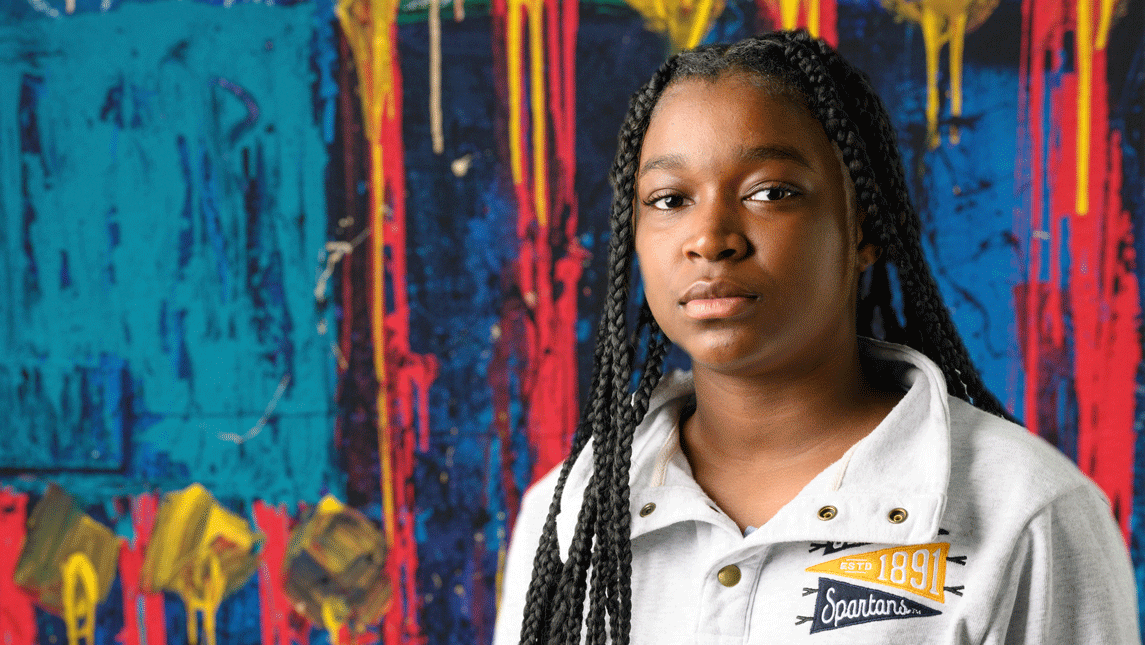
Growing up, first-year UNCG student Mikhalia Lambert was taught one main goal in dealing with public society: survive. She understood why her parents taught her that. As a high schooler, she went on class trips that introduced her to social justice initiatives, and she became more aware of African American literature and history, and popular cultural touchpoints, such as the “This is America” video by Childish Gambino.
“My sophomore year of high school was basically when I got started for real,” she says about her activism work, “and then my junior and senior years were when I started doing bigger things…that’s when I really started vocally advocating for my community and changing a lot of my views on things.”
She and a friend made a film called “We are Done Dying” that was shown at NAACP chapter meetings. She also started working with the Equal Justice Initiative that works to research and memorialize lynchings, such as that of George Taylor in Rolesville, N.C. She is now working on the acknowledgment for Eugene Harrison, who was lynched in Greensboro. Lambert is also the president of the NC Young Black Panthers. At UNCG, she is a major in AADS and has been asked to speak in classes as a special guest because of her advocacy work. At the CACE conference, she will be a part of the student roundtable and Q & A, “The Equal Justice Initiative: Our Experience Claiming Wake County, NC’s Lynch Victim.”
Her thoughts about Black History Month?
“I really think it’s important to look at all Black activists, rather than going only to our most famous people. Instead of only focusing on Martin Luther King, Jr, Rosa Parks, and Harriet Tubman, we should look at other Black leaders and activists such as Ida B. Wells, W.E.B. Du Bois, and others. And it’s also really important to advocate for lynch victims here in North Carolina, in here in America. Because a lot of the time during Black History Month, that’s not something we talk about. And it needs to be talked about for sure. But Black History Month isn’t just about the hard history of Black people, but it’s also about empowerment, and it’s about really rising up and becoming successful, amazing black men and women. I think Black History Month should be about our hard history. But it should also be about all the good we’ve done. For example, like, we are some, we’re some of the main leaders in the music industry. Black women are the most educated group of women in America. And I just think that we should also take our wins as well, rather than a lot of our losses for sure.”
Her words for UNCG’s Black students?
“Just stand up and stand out. Be you. Keep pushing, and finish your classes, get your degree, be successful, and just become an advocate for yourself.”
Mulubrhan Kidanu
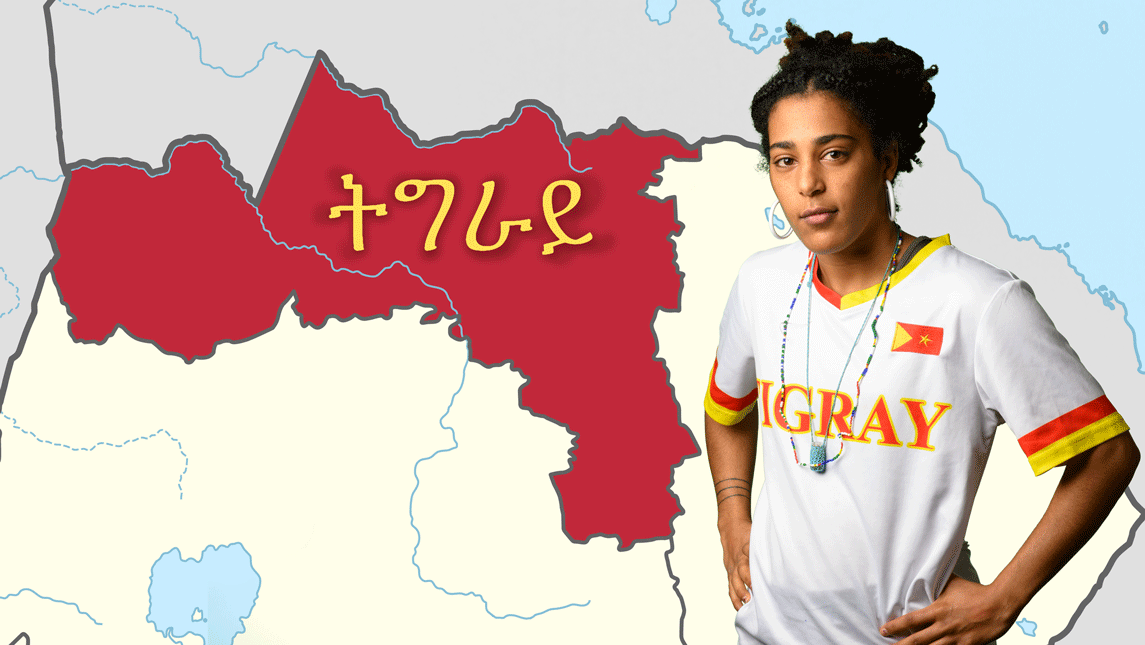
Third-year Mulubrhan Kidanu is from Tigray originally but was adopted in the United States as a child, when her parents passed away. She has kept in close touch with her other family members in Tigray for her whole life but has not been able to contact them in nine months because of the ongoing civil war with the Ethiopian army, Amhara militia, and Eritrean soldiers and the genocide wrought upon the Tigrayans and others, along with massive destruction, food and medical shortages, and a communication black-out.
“The last time I talked to them,” Kidanu says about her family, “I remember my uncle telling us that there were some soldiers in our town and that they couldn’t go outside.”
Kidanu chose UNCG because of the AADS major. She is an ambassador and intern for the program, and organized the Kiswahili language table, a conversation group that meets on Fridays in the AADS program, and is open to all. Kidanu, an advocate of women’s empowerment, has been studying martial arts for 10 years. To share what she’s learned, she has created a club at UNCG called Women 2 Women Self-Defense.
At the CACE conference, she will make a presentation about the Tigrayan language and voice her thoughts about African language instruction on campus as well as the situation in Tigray.
Her thoughts about Black History Month?
“I’ve always been very passionate about it. Even in middle school and in high school – like, I used to look up any information I could find about African people, and I was never really satisfied with my school curriculum, when we only learned about people as famous as Martin Luther King Jr., and only a certain side of them.”
Her thoughts about AADS at UNCG?
“I really like the teachers, and they know what they’re talking about. One of my favorite classes was “Africans in the Greco-Roman World,” because I didn’t know there were contributions that African people made in certain areas at that time. I look forward to working with more professors of color in the future to broaden my perspective even more.”
Owusu Takyi
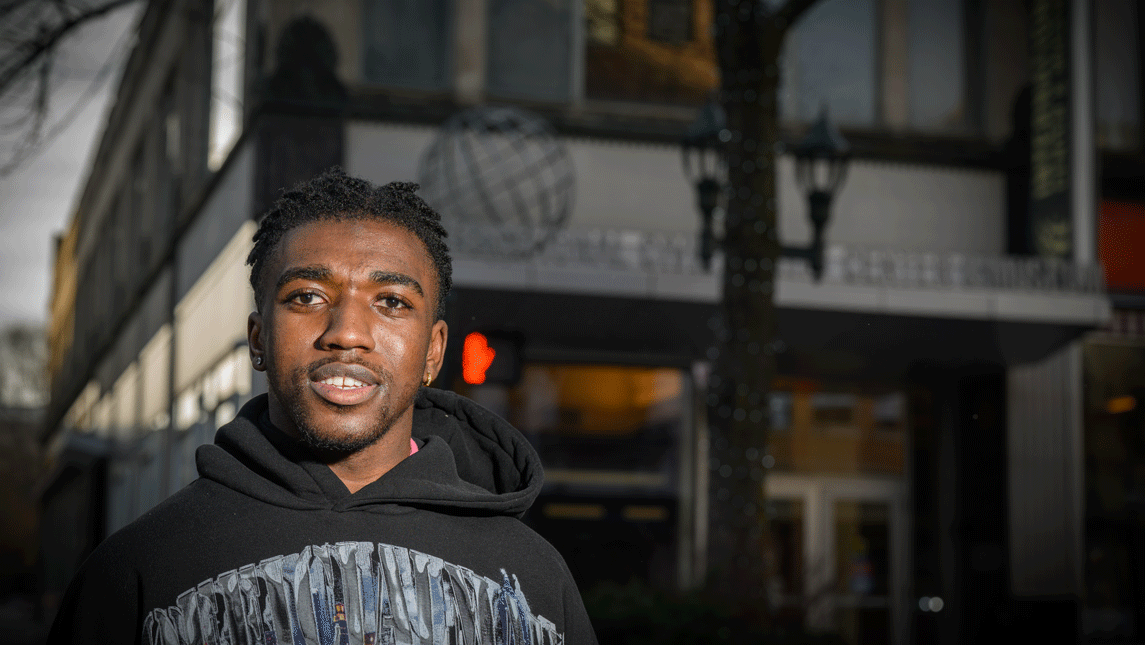
First-year student Owusu Takyi is a computer science major with a minor in AADS. As an intern, he contributes to the program with his video and digital marketing skills, curating images for storytelling. He was born in Ghana and moved to the United States as a young child. He found AADS in college because he wanted to learn more about the history of Black people in America, since he had learned so many things from a Ghanian perspective. Takyi will also be part of the student roundtable on “The History of Black Studies at UNCG.”
His thoughts on Black History Month?
“It’s like a spotlight for us. It helps people see what’s really going on throughout history. Not everything was made by one race. And it just helps people see what’s going on.”
His words for UNCG students?
“Dive into the history here, because if you’re going to live here, you need to know about what’s going on and educate yourself. And when you share what’s happening, know that storytelling helps get a point across. Images and storytelling can help us understand better.”
Kyla Saunders
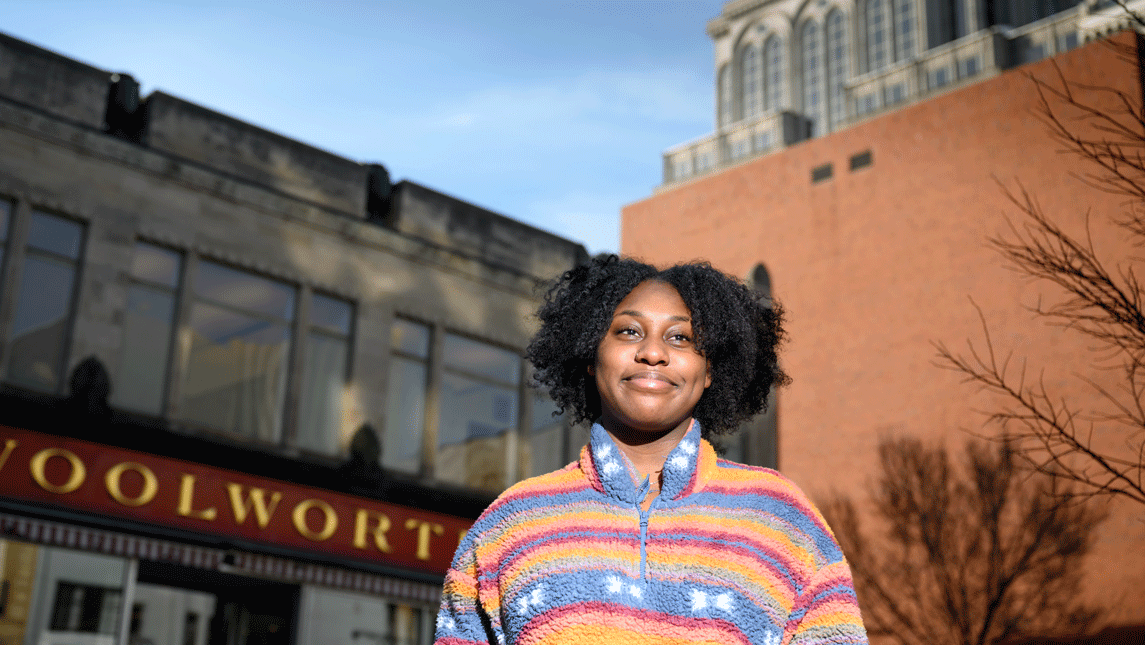
Senior Kyla Saunders is a psychology major with a minor in AADS, and her research focus is Black mental health.
“In the Black community, there is a huge stigma surrounding mental health,” she says. “Between seeing Black lives being taken by white people with no remorse, the world seeing us as ‘stronger than average,’ and the stigma behind mental health, many black people refuse to actively seek out the professional help they may need.”
With her research she plans to bring awareness to this issue, to show that it is normal for all people – including Black people – to experience psychological turmoil and to seek help, and that mental health is as important as physical health. In addition to her studies, Saunders, an AADS intern, works with children in an after-school program at Black Child Development of Greensboro Hope Academy. She helps the students with homework and enrichment activities and serves as a resource for the students and coaches.
Her thoughts about Black History Month:
“As a Black woman, I think Black History Month is extremely important. I think it’s really important for everybody to learn about Black history, Black culture, and definitely our Black changemakers. And to focus on black upliftment, and encouragement rather than just black trauma. So, focusing on the black people who made certain things like the traffic light, the ironing board, instead of only thinking about Black trauma, slavery, and segregation.”
Why she chose UNCG?
“I chose to come to UNCG for both personal and academic reasons. From the moment I stepped foot on this campus, it felt like I belonged here. From the diversity on campus, to the amazing psychology department, and also the endless activities to join. The professors are such an amazing resource, especially when looking to gain deeper experience in a subject. I have found UNCG to be a school that does everything in their power to give students the resources they need to be successful in their personal, professional, and academic lives, and that’s why I’m so glad I made the choice to come to this university.”
Story and interviews by Susan Kirby-Smith, University Communications
Photography by Martin W. Kane, University Communications
